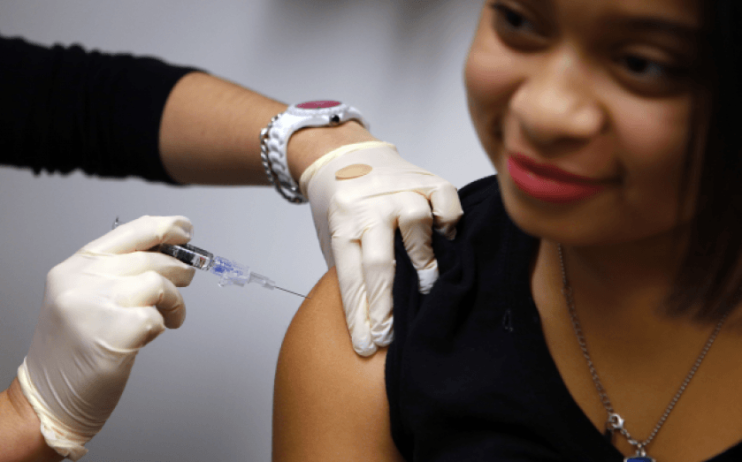Astrazeneca and University of Oxford vaccine 70 per cent effective

The vaccine being developed by Astrazeneca and the University of Oxford is around 70 per cent effective in protecting against coronavirus, late-stage trials have shown.
Researchers announced the vaccine proved an average of 70 per cent effective in more than 20,000 volunteers from across the UK and Brazil.
There were 30 cases of Covid in people who had two doses of the vaccine and 101 cases in people who received a placebo.
Effectiveness rose to 90 per cent in a group of volunteers who were given an initial half dose followed by a full dose later on, though the reason for the difference is not yet clear.
Sarah Gilbert, professor of vaccinology at the University of Oxford, said: “The announcement today takes us another step closer to the time when we can use vaccines to bring an end to the devastation caused by [Covid-19].
“We will continue to work to provide the detailed information to regulators. It has been a privilege to be part of this multi-national effort which will reap benefits for the whole world.”
Although the result is another welcome boost in the hopes for a return to normality next year, the efficacy rate lacked the dazzle than that of Pfizer’s and Moderna’s vaccines, which both proved 95 per cent effective in phase three trials.
Astrazeneca shares slipped 1.2 per cent to 8,220p on the news.
However, the Astrazeneca vaccine is far cheaper, easier to store and more transportable than the other two vaccines.
It can be kept at refrigerator temperature, unlike the drugs from Pfizer and Moderna which have to be stored frozen.
The UK government has ordered 100m doses of the Astrazeneca — enough to vaccinate 50m people, almost the entire British population.
The UK’s order sheet for the Astrazeneca vaccine makes up more than double that of the Pfizer vaccine and 20 times more than the Moderna vaccine.
Four million doses are “ready to go”, the company has announced, with another 96m set to be delivered. The vaccine must still pass safety tests before it can be rolled out to the UK population.
In a statement, Professor Andrew Pollard, director of the Oxford Vaccine Group and chief investigator of the Oxford Vaccine Trial, said: “These findings show that we have an effective vaccine that will save many lives. Excitingly, we’ve found that one of our dosing regimens may be around 90 per cent effective and if this dosing regime is used, more people could be vaccinated with planned vaccine supply.
“Today’s announcement is only possible thanks to the many volunteers in our trial, and the hard working and talented team of researchers based around the world.”
Health secretary Matt Hancock said the results were “fantastic news”.
“We’ve got 100m doses on order and should all that go well, the bulk of the rollout will be in the New Year.”
Business secretary Alok Sharma added that the results of an interim analysis of the University of Oxford and AstraZeneca’s coronavirus vaccine candidate were “very promising”.
He tweeted: “Very promising data from the Oxford/AstraZeneca Phase III clinical trials. We are on the cusp of a huge scientific breakthrough that could protect millions of lives. The UK has secured early access to 100m doses of their vaccine – on top of 255m doses from other developers.”
Health secretary Matt Hancock on Friday said the NHS will be ready to start rolling out the vaccine by the start of next month.
“If the regulator approves a vaccine, we will be ready to start the vaccination next month with the bulk of the rollout in the New Year,” he said at a Downing Street coronavirus briefing.
“We’re heading in the right direction but there is still a long way to go,” Hancock added. “Coronavirus remains a grave danger right now”.
Deputy chief medical office Professor Jonathan Van-Tam said vaccine approval “will happen at the speed of science”.
“[Regarding] certainty about vaccines before Christmas, we do have a certain readout on the Pfizer/Biontech vaccine, which we have contracted to obtain for the British people,” he said.